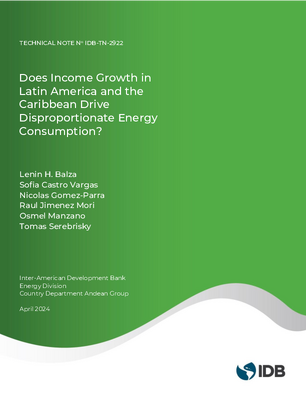Does Income Growth in Latin America and the Caribbean Drive Disproportionate Energy Consumption?
Date
Apr 2024
We examine the relationship between energy consumption and economic growth in Latin America and the Caribbean using panel data from 1971 to 2019. Employing both parametric and non-parametric methods, we find a robust positive correlation between Latin America and the Caribbean's economic activity and energy consumption. Specifically, a 1% increase in income is associated with a 0.4% increase in total energy use in the short term, rising to a 0.9% in the long term. Further analysis highlights that Latin America and the Caribbean countries consistently display higher income elasticities compared to other global regions and this relationship exhibits discernible non-linearities. A temporal breakdown indicates an increased correlation in Latin America and the Caribbean post-1991 confirming the non-linear, region-specific, and temporally evolving characteristics of the income-energy relationship. Our results are robust to multiple methodological approaches and to variations in how income and consumption are measured. These findings hold significant implications for energy policy in the region, especially in the context of climate change mitigation efforts.
NO




